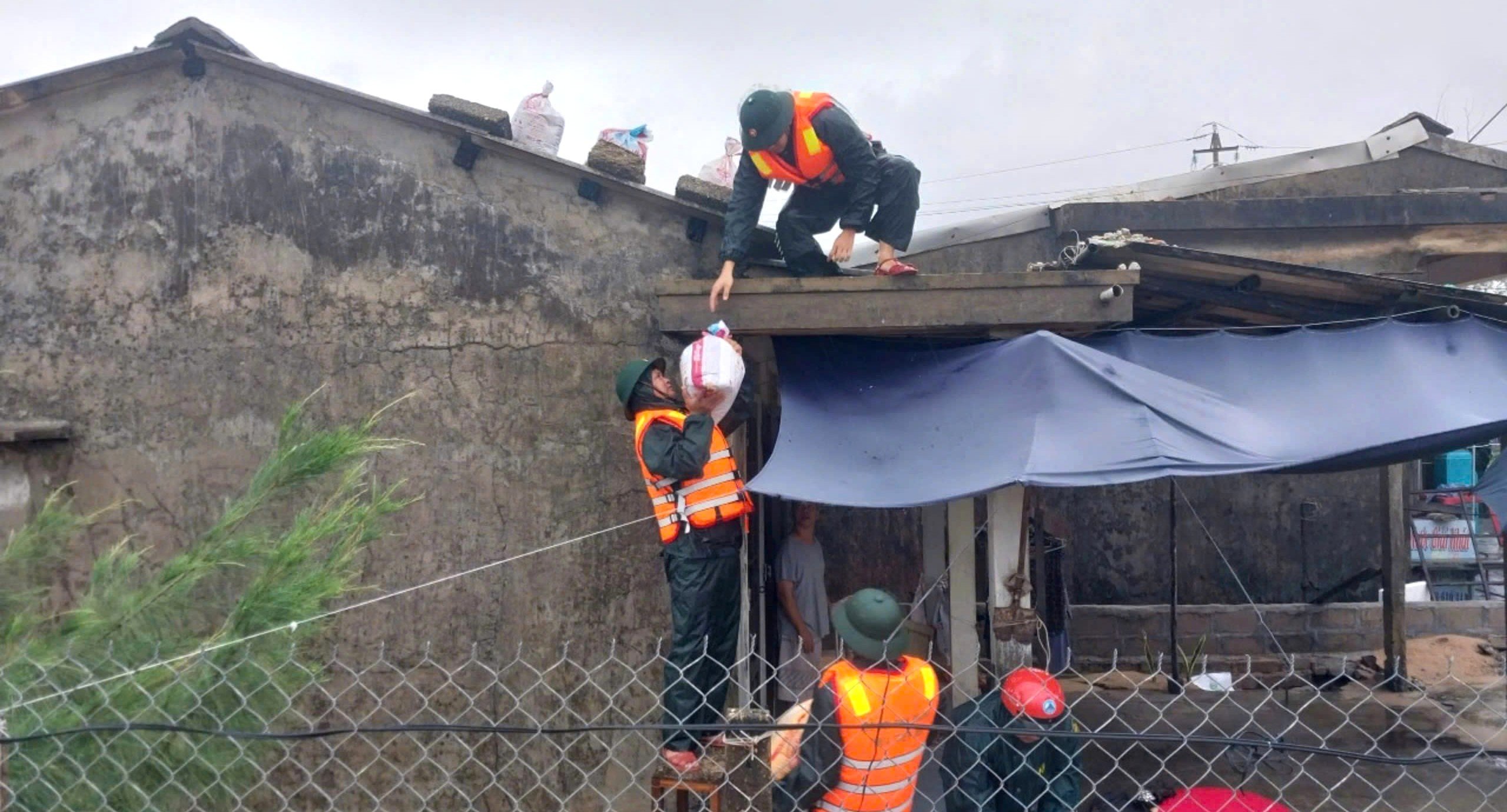 |
| Armed forces help people reinforce their houses |
For fishermen and vessels operating at sea, regularly monitoring forecasts and determining their location relative to the storm's affected area is extremely important.
Fishermen need to quickly bring their boats to the nearest safe anchorage or proactively leave the dangerous area. The Border Guard and relevant agencies also recommend that people keep in regular contact, clearly reporting the location and number of people on board to receive timely support.
A vital rule of thumb is to never sail in the same direction as the storm. All equipment and fishing gear must be securely tied down, nets must be gathered, and ready to be cut off in an emergency. More importantly, crew members must wear life jackets, maintain communication with the coast guard, and follow the instructions of the authorities.
On land, coastal communities, low-lying areas and mountainous areas need to be even more vigilant. Storms are often accompanied by prolonged heavy rains, which can cause deep flooding, landslides and sudden flash floods. Authorities recommend that people quickly complete bracing and reinforcing their houses, trimming tree branches, and removing billboards or temporary structures to minimize risks.
At the same time, people need to prepare food, water, medicine and essential items for their families; identify safe shelters and be ready to evacuate according to government orders. In particular, absolutely do not stay on boats, rafts, or watchtowers when the storm hits, because this carelessness can cost lives.
For agricultural production, people should take advantage of early harvesting of crops and aquatic products; raise high places, protect property and livestock barns. Motor vehicles should be moved to high places, avoid flooding. In urban areas, proactively clearing drainage and not parking in areas prone to flooding are also ways to minimize damage.
Households living in high-rise apartments should lower ornamental plants and flower baskets to the ground, store clean water for at least 3 days, prepare flashlights, and fully charge mobile devices to deal with power outages. In areas that are often deeply flooded, life jackets or items that can be used as buoys such as banana stems and plastic cans should also be prepared.
Even tourists need to be cautious. Authorities recommend closely monitoring weather developments and proactively postponing or cancelling trips when conditions are unfavorable. Avoid traveling to coastal areas, remote islands, and mountainous areas at risk of landslides and flash floods. Safety must be a top priority.
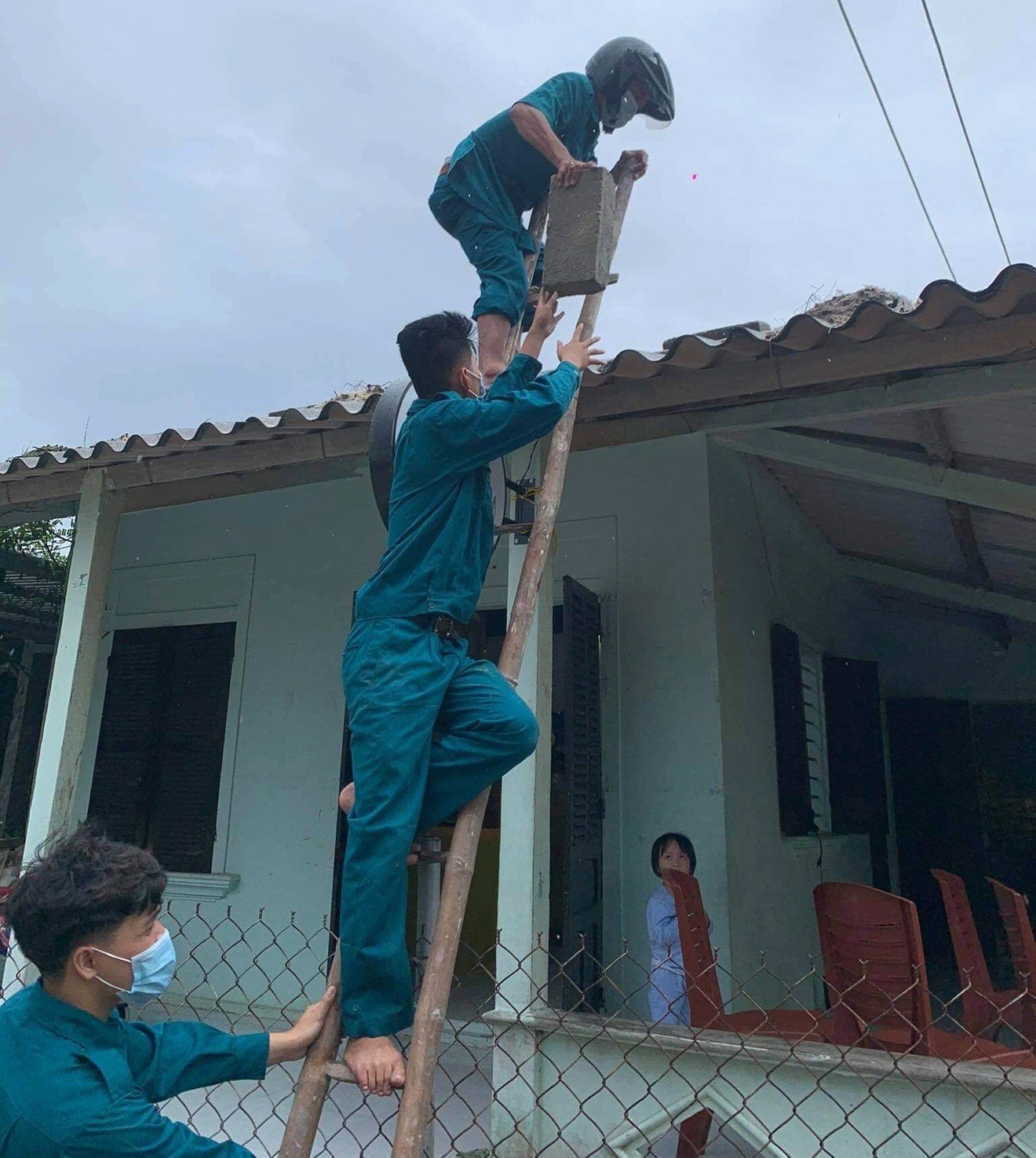 |
| According to the request of Hue City People's Committee, all plans for reinforcement, relocation, food storage and preparation to respond to storm No. 5 must be completed as soon as possible. |
According to the request of the Hue City People's Committee, all plans for reinforcement, relocation, food storage and response preparation must be completed as soon as possible. Reality over the years has shown that most of the human and property losses in storms come from subjectivity, lack of preparation or disregard for the recommendations of authorities.
Therefore, strictly following instructions and closely coordinating with the authorities is the responsibility of every citizen to protect themselves, their families and the community.
Storm No. 5 is approaching. More than ever, vigilance and proactive prevention are the solid “shields” that help minimize the damage caused by natural disasters.
Source: https://huengaynay.vn/kinh-te/nong-nghiep-nong-thon/chu-dong-ung-pho-voi-bao-so-5-157026.html



![[Photo] Prime Minister Pham Minh Chinh chairs the meeting of the Government Party Committee Standing Committee](https://vstatic.vietnam.vn/vietnam/resource/IMAGE/2025/8/23/8e94aa3d26424d1ab1528c3e4bbacc45)


![[Photo] General Secretary To Lam attends the 80th Anniversary of the Cultural Sector's Traditional Day](https://vstatic.vietnam.vn/vietnam/resource/IMAGE/2025/8/23/7a88e6b58502490aa153adf8f0eec2b2)


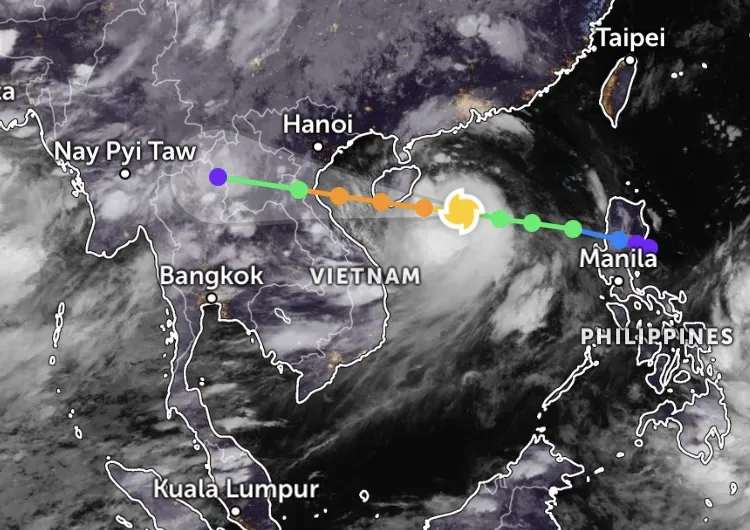

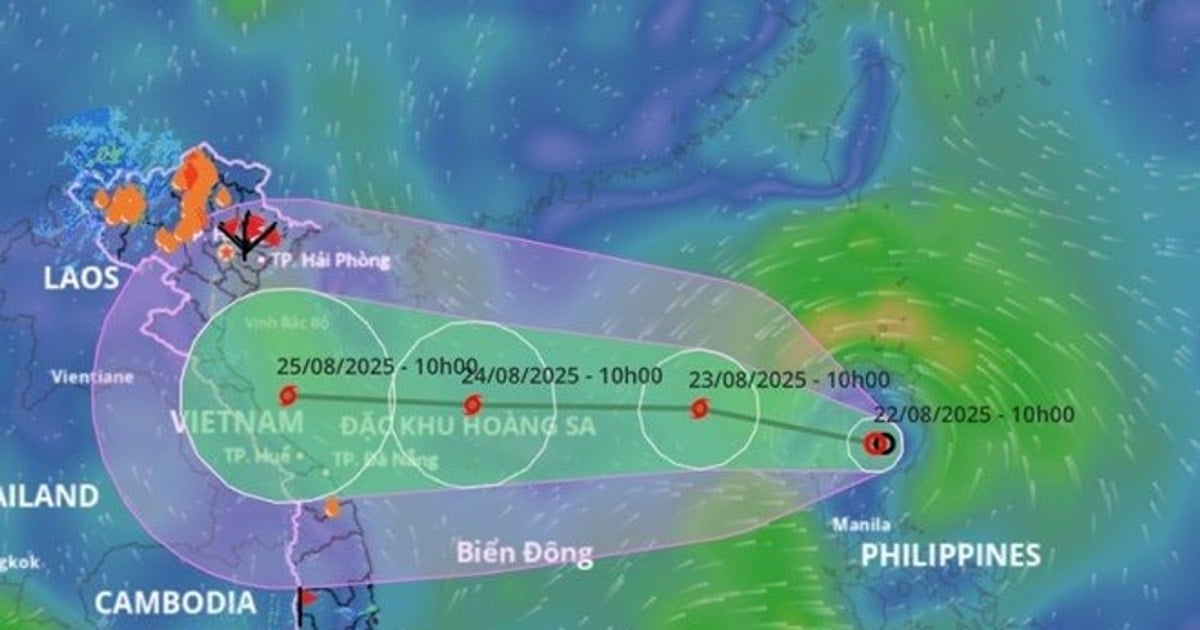

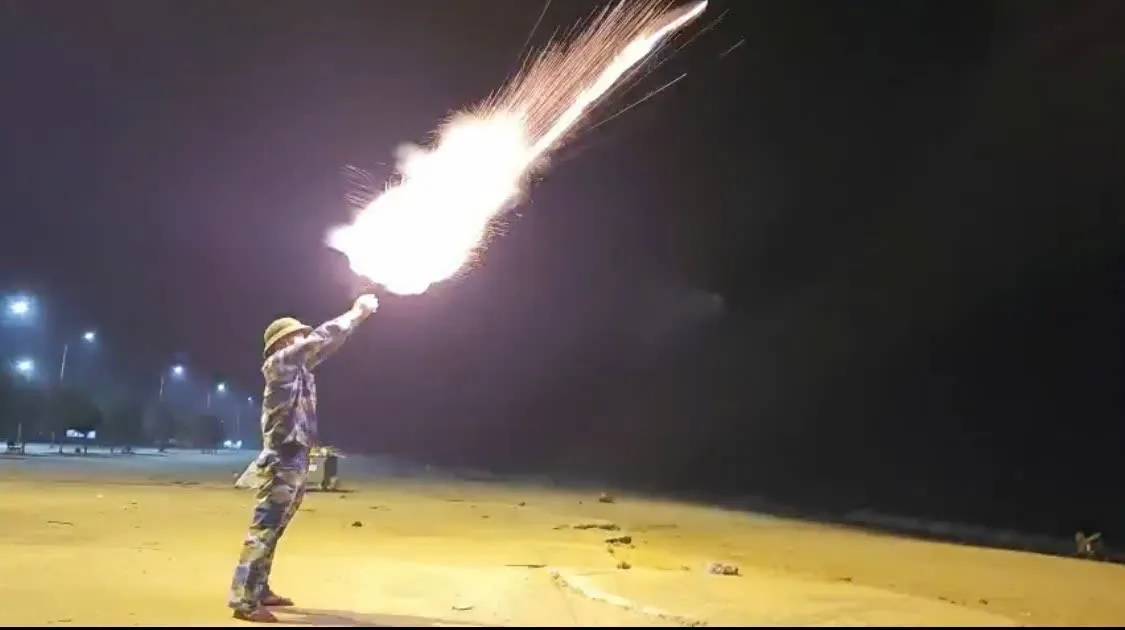



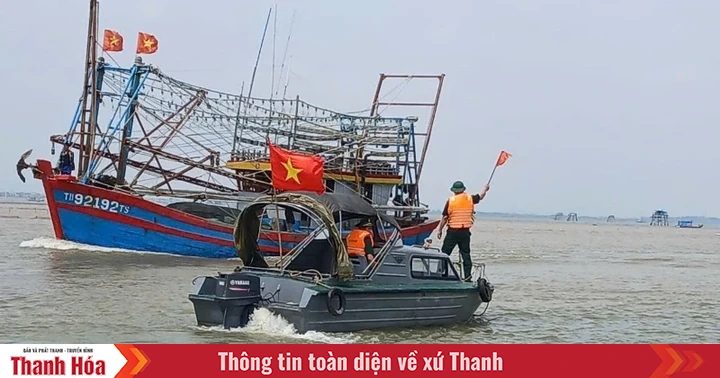


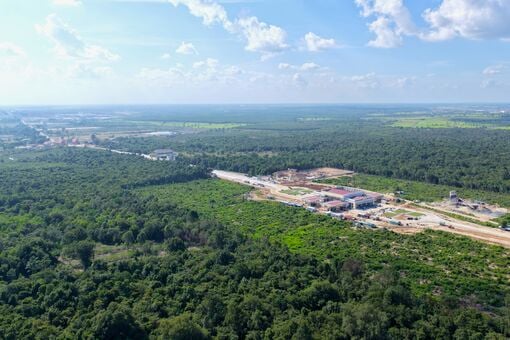

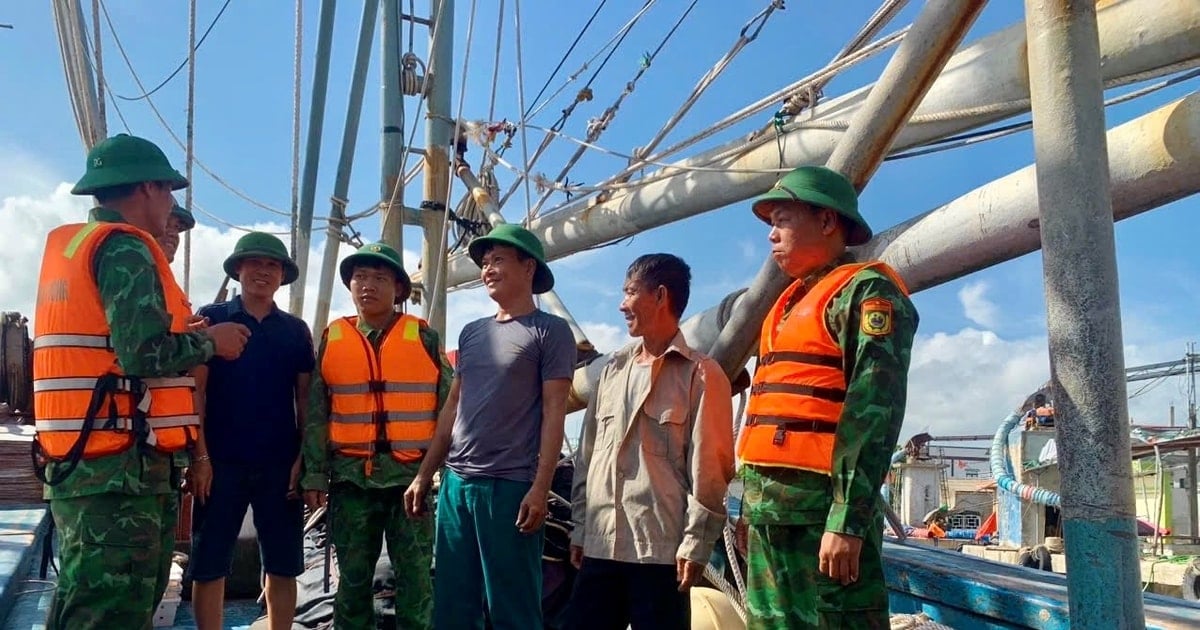


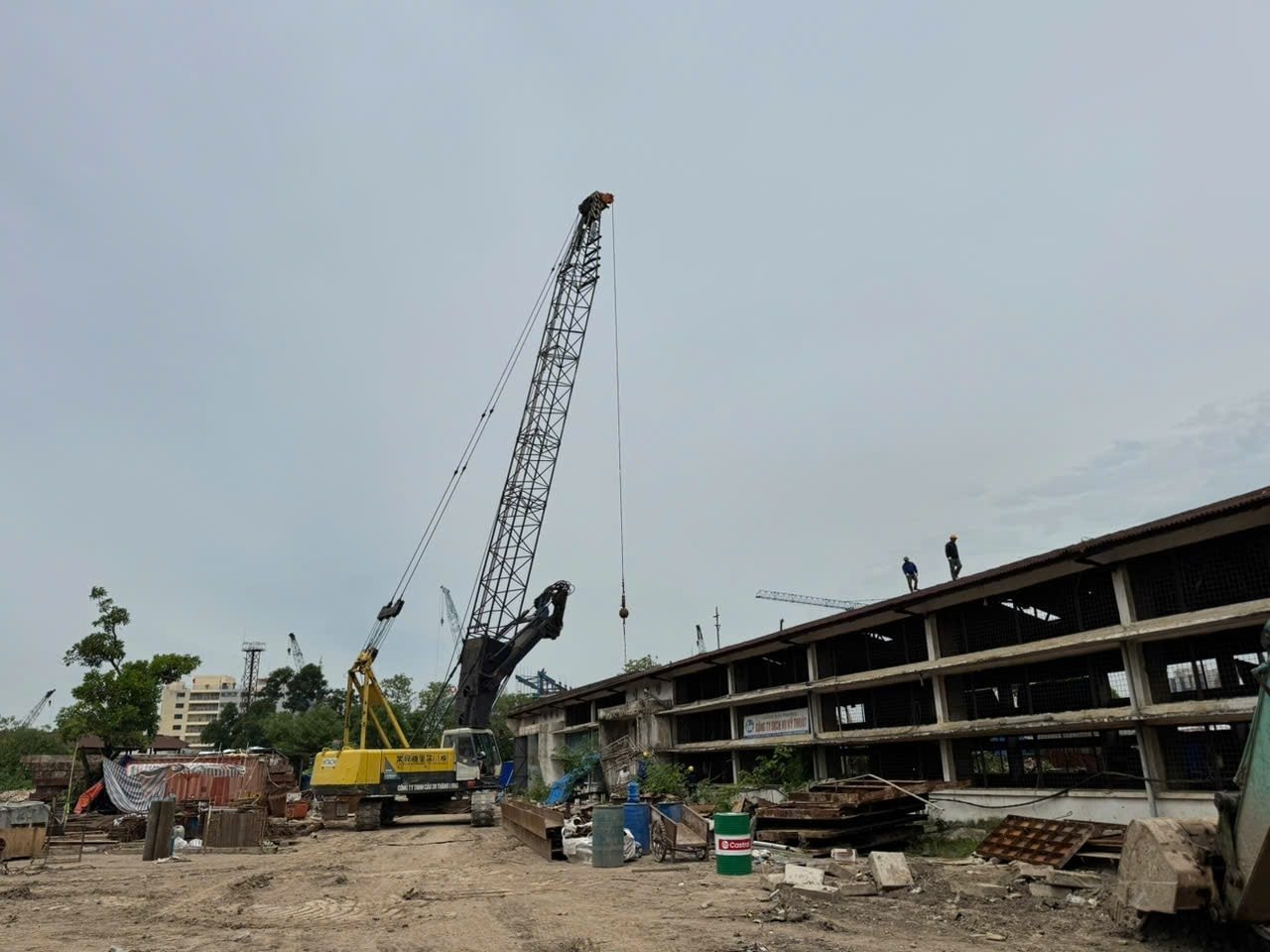

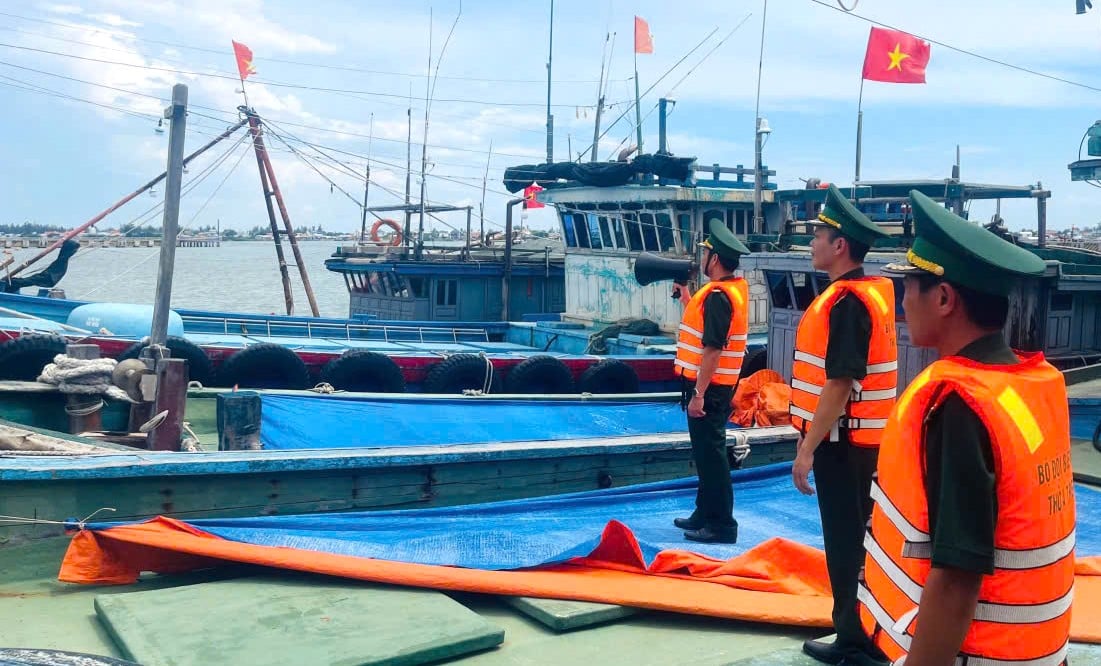




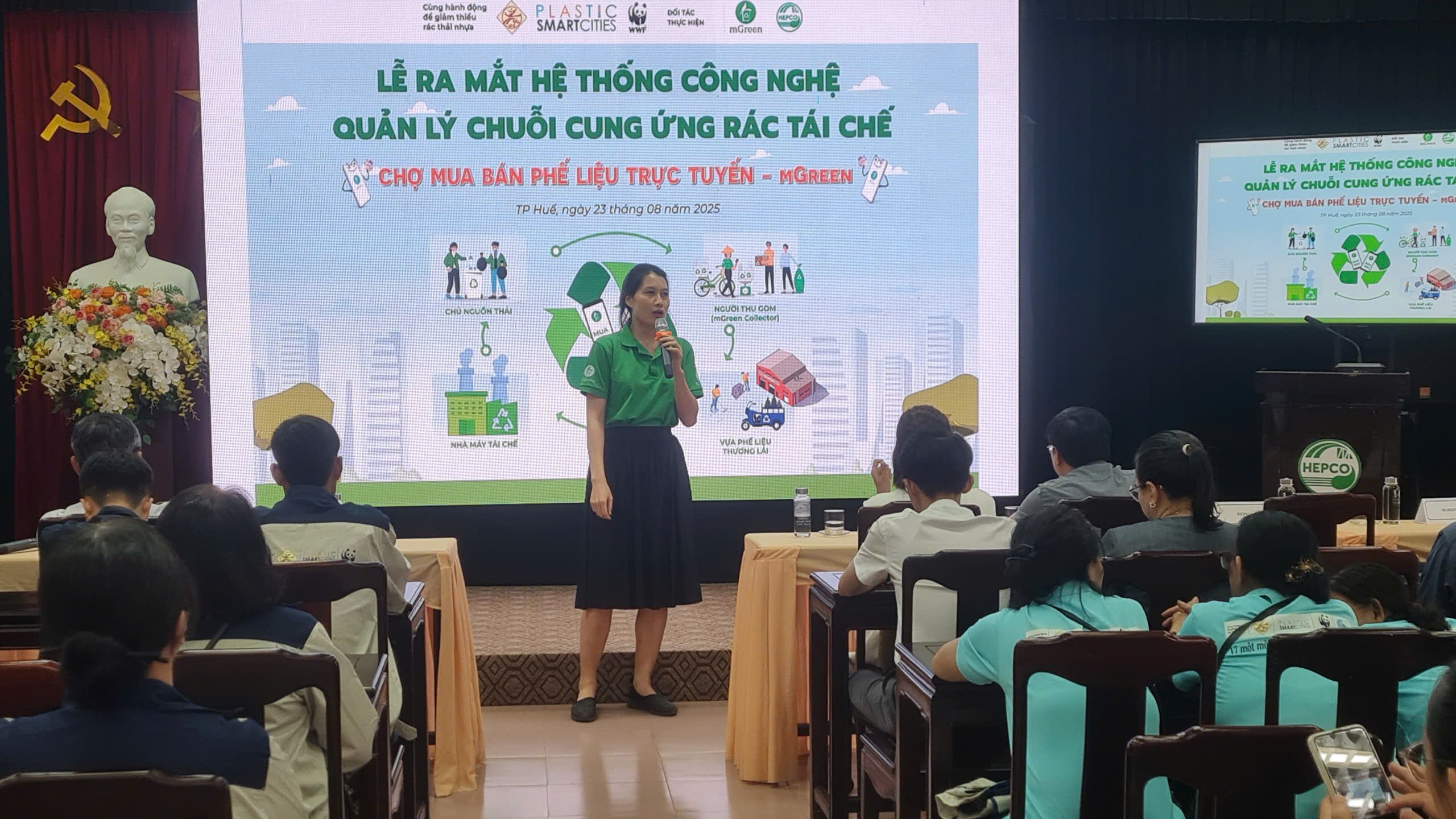




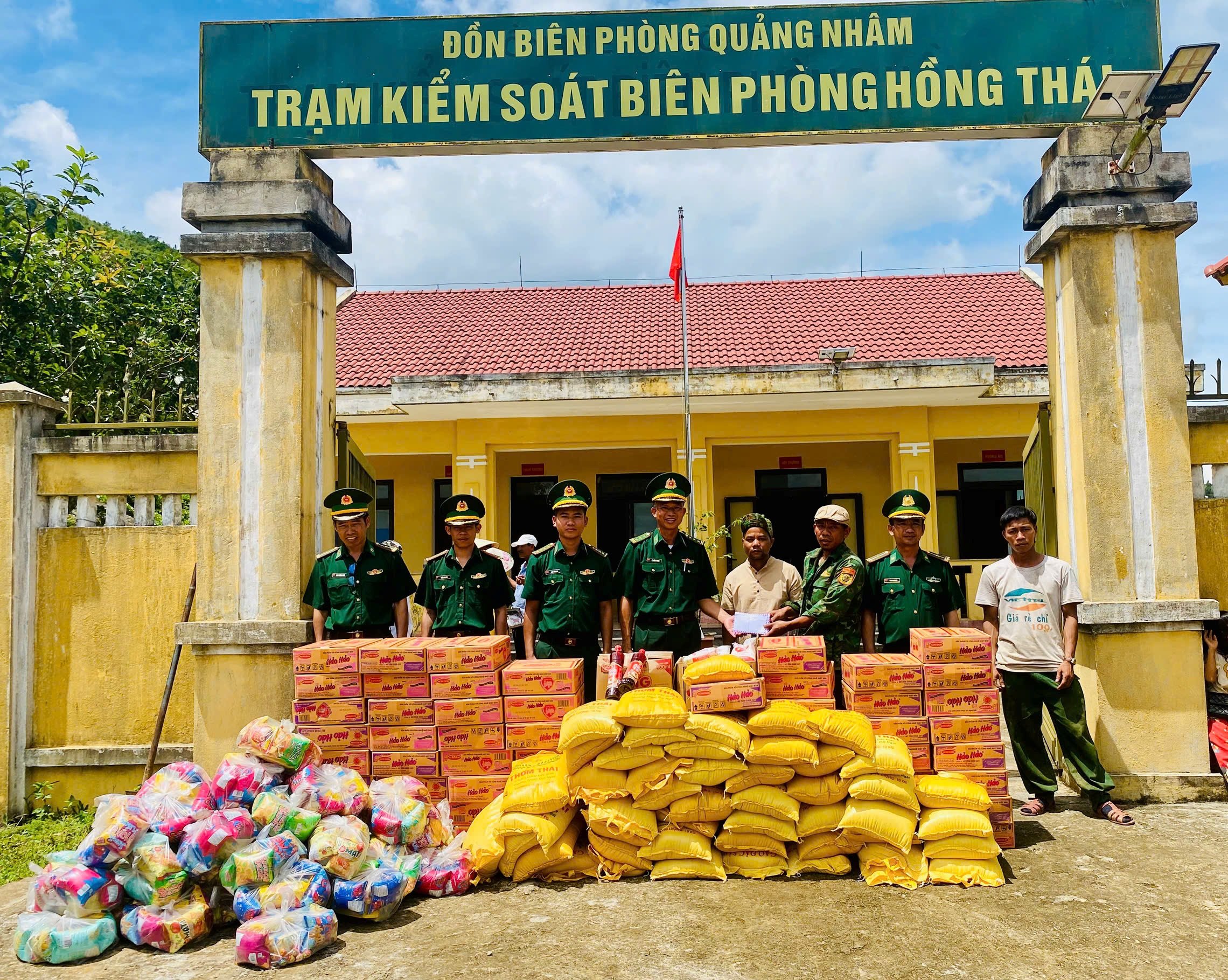












































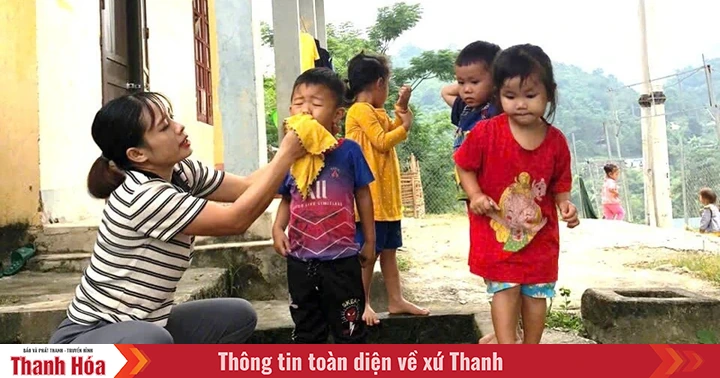


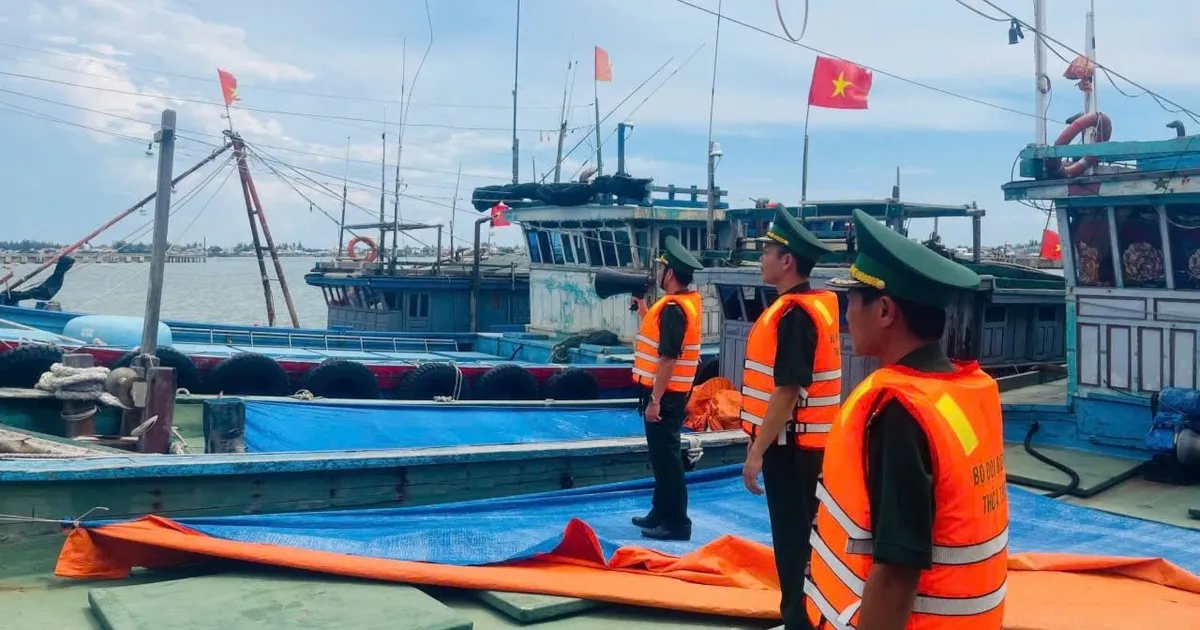


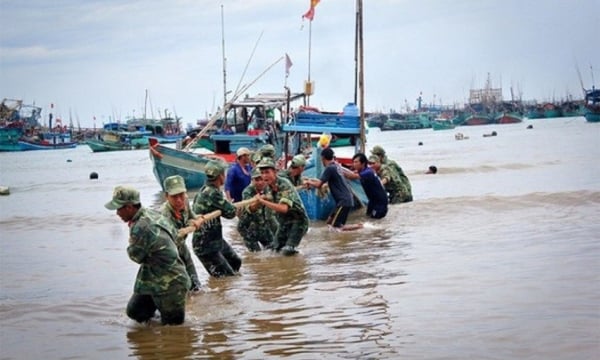















Comment (0)